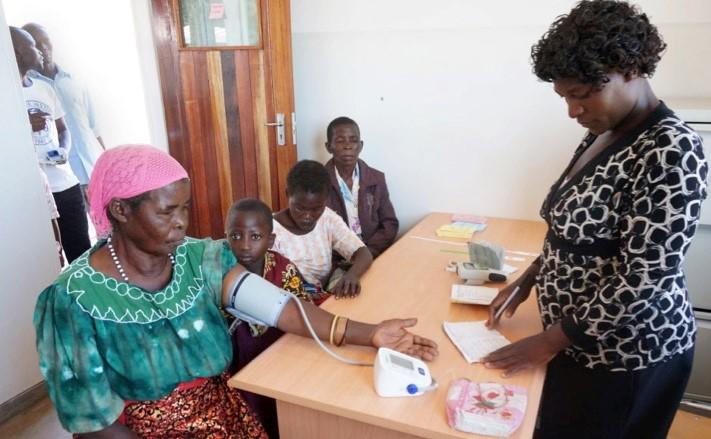Luckson W. Dullie: Primary care in Malawi: a study of patients’ experiences with services
Luckson Wandani Dullie is a PhD student from Malawi who is studying the comprehensive reform of Malawi’s primary health care system.

Main content
His principal supervisor is Sturla Gjesdal, a Professor in Health Services Research. Dullie’s research project has also been supported by the NGO Partners In Health (PIH), which has been working in the Neno area of Malawi since 2007. Learn more.
In January 2016, PIH signed an Memorandum of Understanding with the Malawian government, undertaking to help develop the Neno district as a model district for primary health care in Malawi. The aim of the initiative is to develop and test innovative primary health care strategies, as well as developing assessment tools to evaluate the impact of the programme so that the model be expanded to include other Malawian districts.
Assessing a system
According to Dullie, well established primary care is the backbone of effective, efficient and equitable health care delivery systems in all countries around the world, both developed and developing. Assessing a health care system requires a tool such as the American Primary Care Assessment Tool (PCAT), which has now been widely adapted and used in patient surveys in many countries.
PCAT was designed to assess the core dimensions of accessibility, comprehensiveness, coordination and continuity, and accountability in a health care system. In addition, it also assesses derivative dimensions such as family orientation, community orientation, and cultural competence. Learn more from WHO about Primary Care Evaluation Tools.
Undertaking system-wide initiatives
While Malawi is a signatory to global declarations on primary health care, the country’s health system faces with the most severe shortage of healthcare personnel in sub-Saharan Africa. There are only 2 physicians and 34 nurse/midwives per 100,000 inhabitants. However, the country is taking steps to address the issue. It has a Health Sector Strategic Plan “that is inspired by the primary health care approach”.
One initiative of the Plan is that in 2015, Malawi’s sole medical school started a specialist family medicine training program to train family physicians assist district health systems with primary health care implementation. Assessment is integral to evaluating the success of the primary care reform initiatives. It is also important to be able to describe, compare and follow-up services from patients’ perspectives.
PhD Project: Primary care organisation and performance in Malawi: a study of patients’ experiences with services
Dullie’s PhD project had 3 objectives: to adapt and validate a primary care assessment tool for use in Malawi; to measure primary care performance from patient perspectives in a rural district in Malawi; and, to assess factors associated with primary care performance in different types of public health facilities in Malawi.
Dullie started his PhD work by adapting the South African PCAT (ZA_PCAT) to the Malawian health system and Malawian culture. His first paper, now published, was the first attempt to adapt and validate a tool that could be used to assess primary care performance from patients’ perspective in Malawi
His results showed that his adapted PCAT-Mw is a valid tool that will give reliable input for assessing primary care health service in Malawi. The results of the assessment will provide a baseline for defining quality improvement gaps. They can be used alongside clinical health outcome studies to provide comprehensive evaluation of primary care performance in Malawi.
After developing and validating PCAT-Mw, Dullie used the tool to assess the impact of the pilot primary care delivery programme being undertaken in the rural district of Neno. It was also used to evaluate the organization and performance of primary care two other districts in the South-west part of the country
Planned papers
- Paper I: Development and validation of a Malawian version of the primary care assessment tool
- Paper II: Quality of primary care from patient perspective: A cross sectional study of outpatients’ experience in rural Malawi.
- Paper III: Types of health care facilities and the quality of primary care: a study of experiences of Malawian patients in South West health zone, Malawi.

